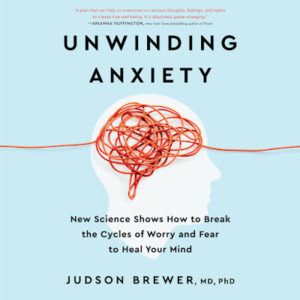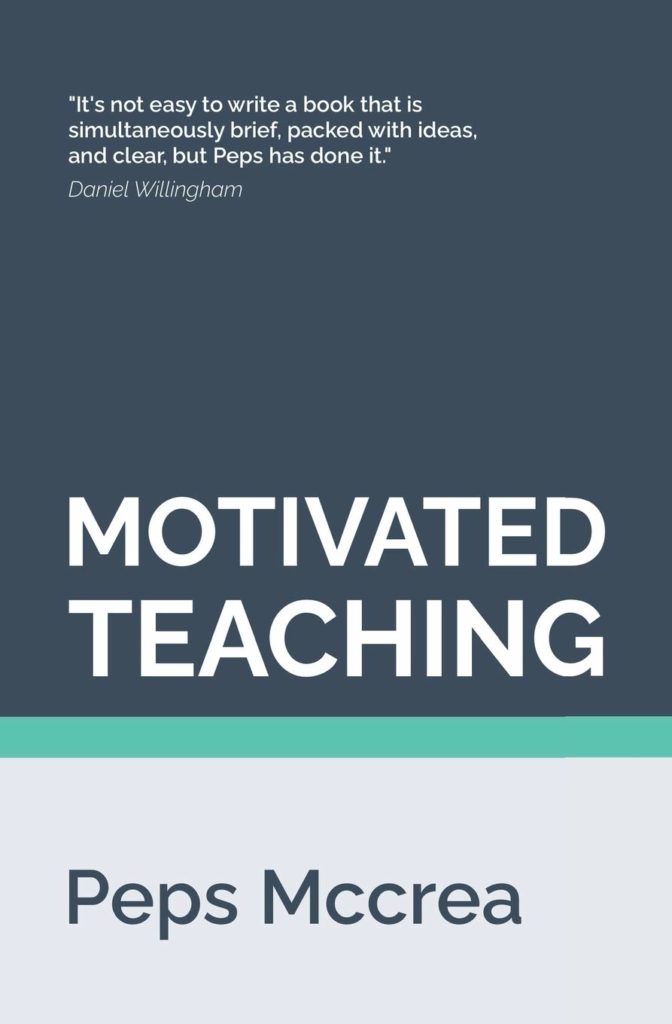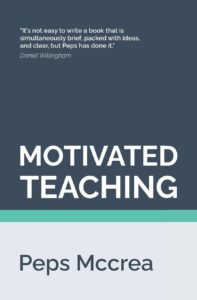 Even before the increase in mental health challenges caused by the COVID-19 pandemic, we were living in an era of heightened anxiety. People experience feelings of worry, nervousness, or unease related to their futures or to life circumstances shrouded in uncertainty. In Unwinding Anxiety: New Science Shows How to Break the Cycle of Worry and Fear to Heal Your Mind, Judson Brewer, professor in Brown University’s School of Public Health and Medical School, shows that anxiety is a type of habit, and that the science of habit formation and addiction can help address anxiety. By some estimates, just shy of one-third of U.S. adults will experience an anxiety disorder at some time in their life. This book is helpful for the many people who struggle with anxiety and for individuals who help support people suffering from anxiety.
Even before the increase in mental health challenges caused by the COVID-19 pandemic, we were living in an era of heightened anxiety. People experience feelings of worry, nervousness, or unease related to their futures or to life circumstances shrouded in uncertainty. In Unwinding Anxiety: New Science Shows How to Break the Cycle of Worry and Fear to Heal Your Mind, Judson Brewer, professor in Brown University’s School of Public Health and Medical School, shows that anxiety is a type of habit, and that the science of habit formation and addiction can help address anxiety. By some estimates, just shy of one-third of U.S. adults will experience an anxiety disorder at some time in their life. This book is helpful for the many people who struggle with anxiety and for individuals who help support people suffering from anxiety.
Anxiety originates from a brain and mind mechanism intended to support survival—i.e., fear is at the root of anxiety, and fear can be key to keeping us out of life-threatening danger. Anxiety is socially contagious and often exaggerated by judgement about our anxiety from ourselves or others. It cannot be avoided with willpower, reason, distraction, substitution, or environmental changes alone. Instead, Brewer suggests that we become aware of our anxiety habit loop and understand the ways in which we reward and reinforce those habits. Identifying a habit loop involves defining a trigger, subsequent behavior, and reward. He suggests practices for breaking bad habits and forming new ones and urges patience in the process of change. Mindfulness, or purposefully and non-judgmentally attending to the present moment, and curiosity, are key parts of unwinding the anxiety habit and curbing perseverative thinking. Brewer argues that mindfulness and curiosity work in part because they do not require changing the thoughts or emotions we have, but instead involve changing our relationship to those thoughts and emotions. For example, when we fall back on a bad habit, rather than chastising ourselves or saying what we “should” do, we can frame the misstep as a learning opportunity. Brewer urges actively saying “hmm” more often. He suggests that between our comfort zone and our danger zone is a growth zone in which we have the potential to help create a new version of ourselves.
Brewer recommends several specific practices for addressing anxiety and forming new mental and behavioral habits. He developed the acronym RAIN to describe one especially helpful practice which involves: 1) recognizing and relaxing into what one is feeling; 2) accepting and allowing those thoughts and feelings; 3) investigating them with curiosity and kindness; and 4) noting what happens in each moment. Paying attention to the present moment, including through breathing exercises, can be very effective. Loving Kindness meditation, which involves wishing yourself and others well, can help us accept ourselves and others as we are, and allowing the feeling of kindness to run through our bodies can provide a sense of calm. Paying close attention to the adverse behavior in a habit one is trying to break and to the good feelings in the new habit one is trying to form can help bring about habit change. Brewer also encourages having faith that you can learn a new skill or habit, practicing those new habits as needed, and focusing on making change in small, manageable chunks of time.
Brewer has examined all these practices through extensive laboratory-based research, as well as through a smart phone app he has developed to change habits. While many people are motivated to address anxiety-related issues because anxiety itself is unpleasant, Brewer offers additional incentive in the form of the wisdom that worrying does not prevent possible future troubles from occurring, but it does rob us of peace in the present moment. To learn more about addressing anxiety and engage with additional resources that Brewer has developed, visit DrJud.com.
Brewer, J. (2021). Unwinding Anxiety: New Science Shows How to Break the Cycle of Worry and Fear to Heal Your Mind. New York: Avery, Penguin Random House LLC















